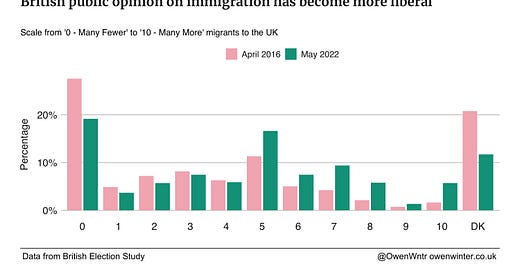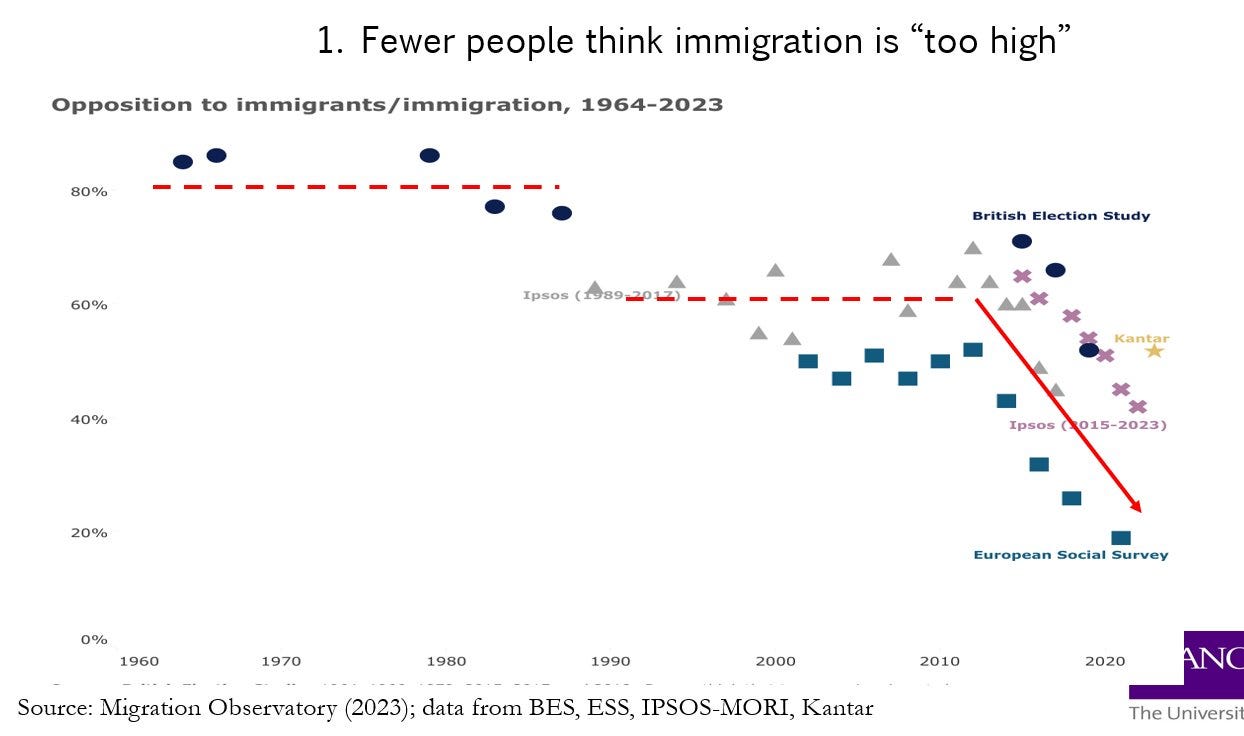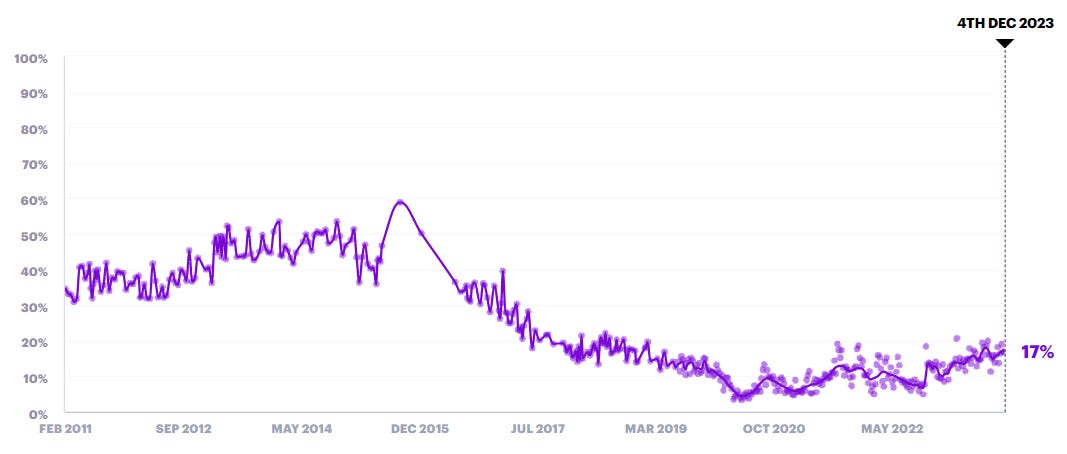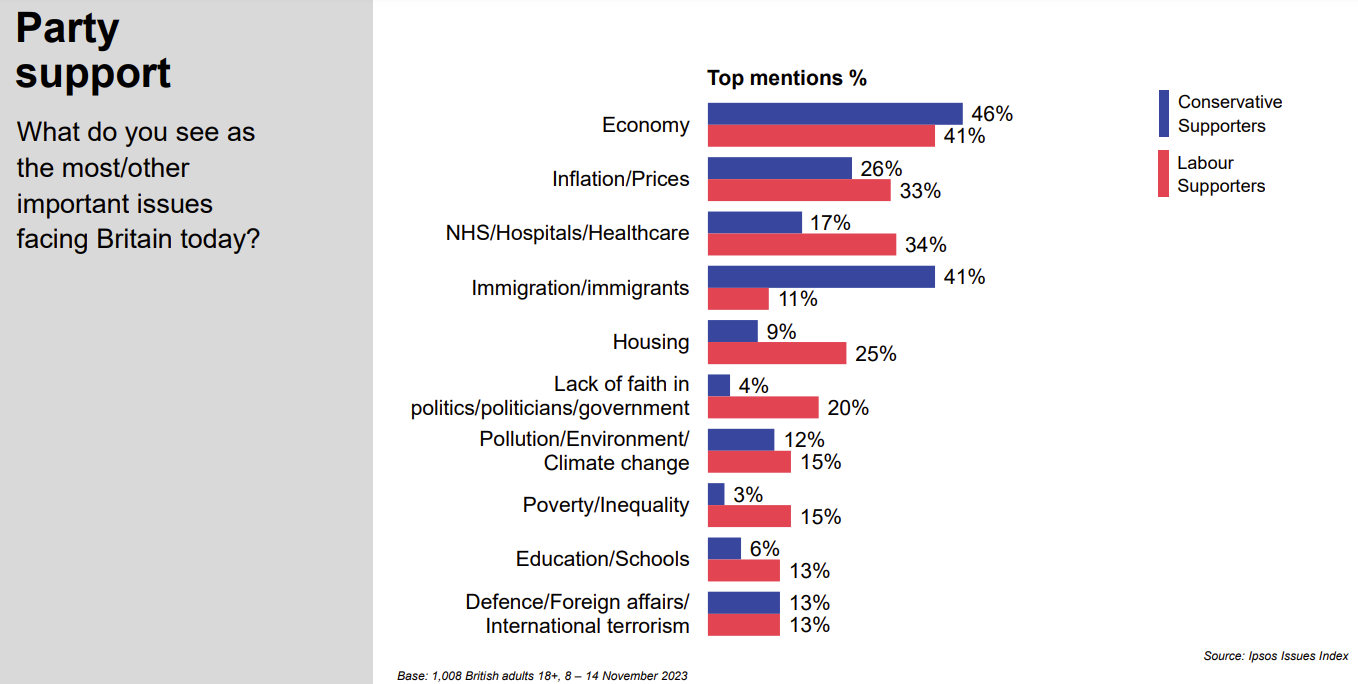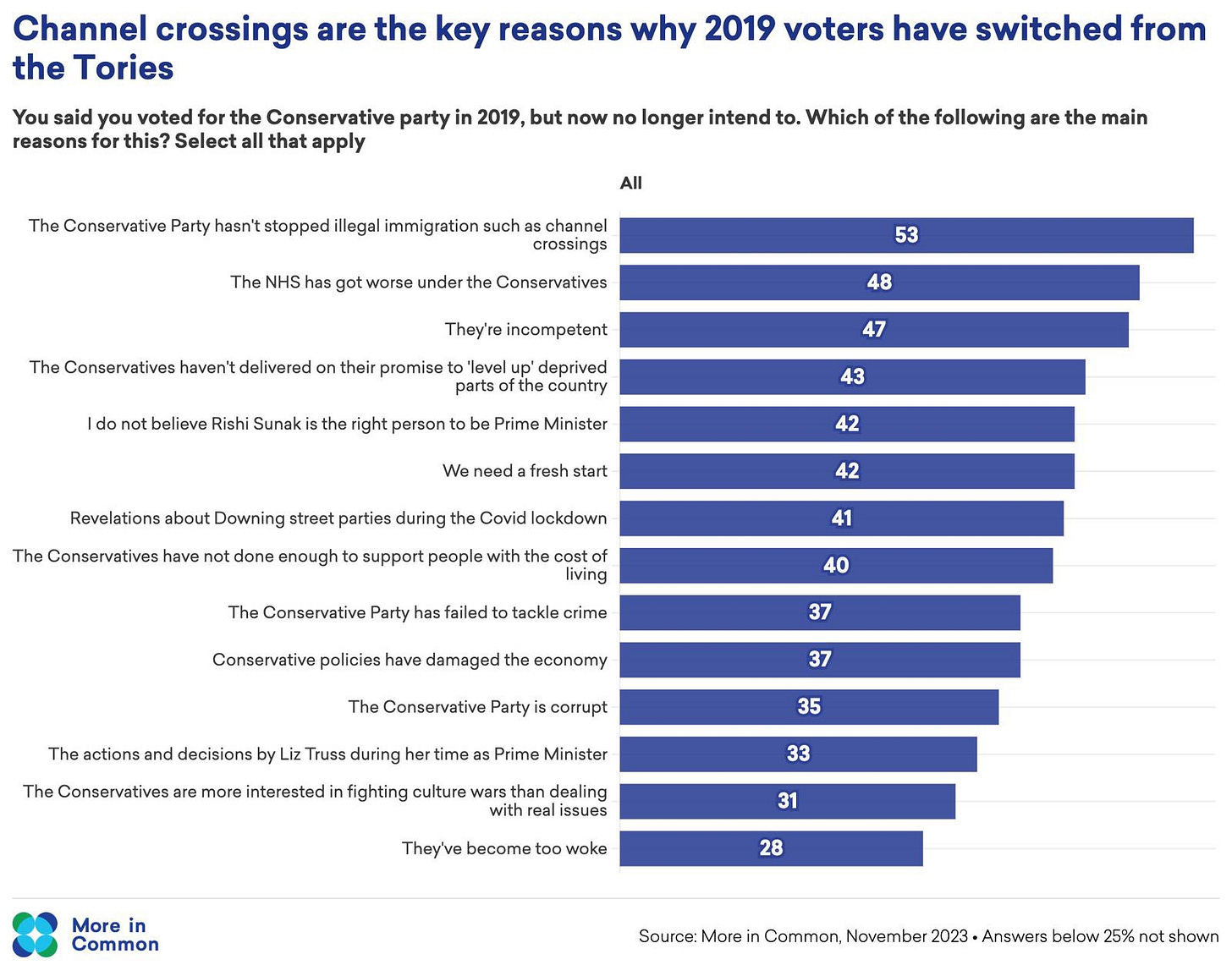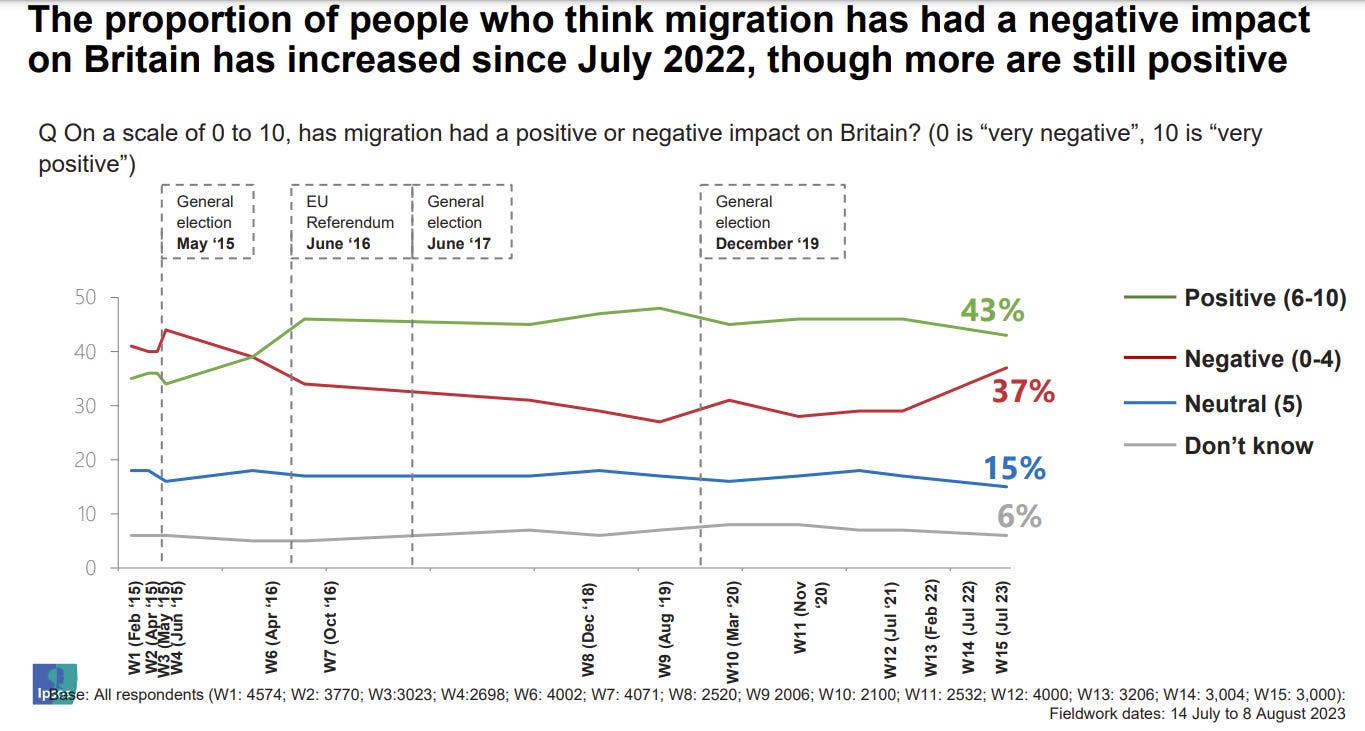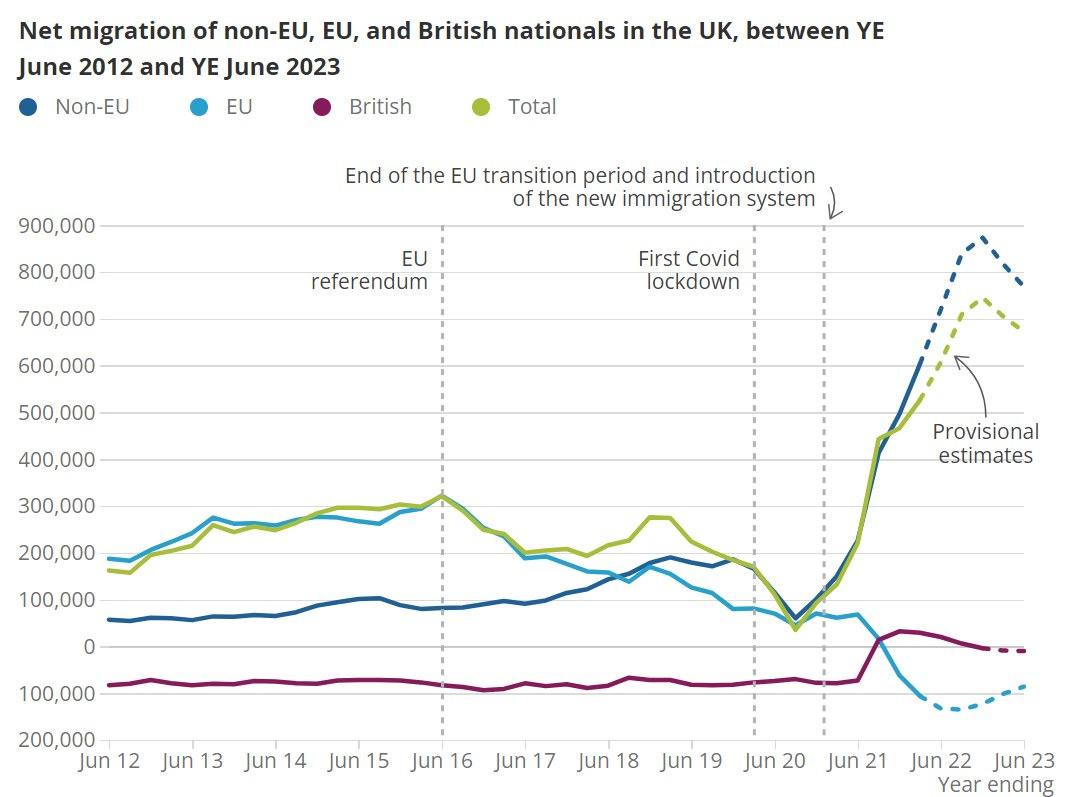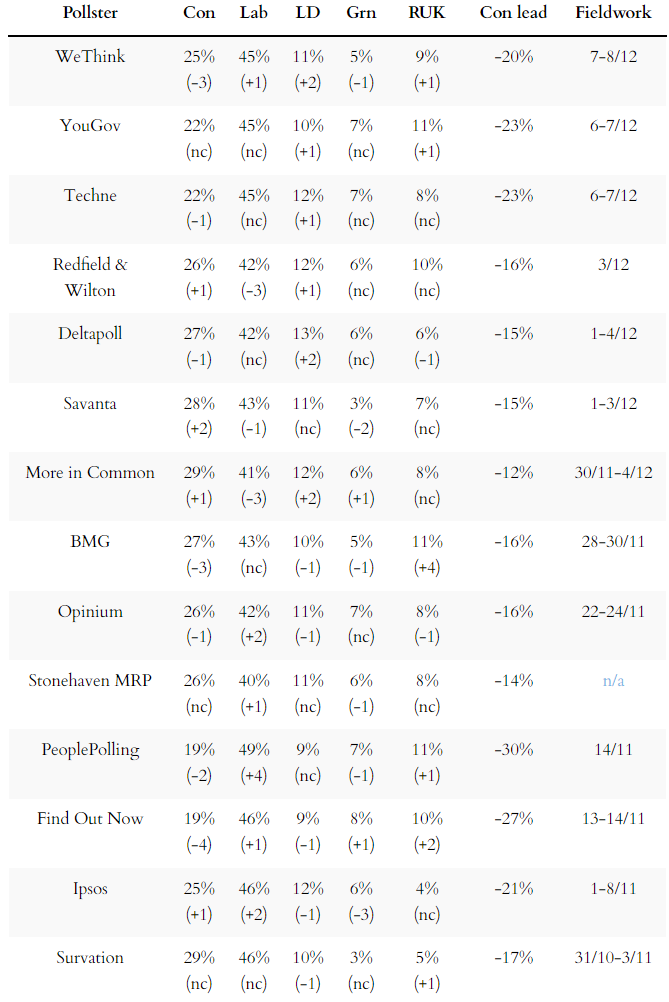Welcome to the 85th edition of The Week in Polls, which wonders whether my previous coverage of immigration has been overtaken by changes in the polls.
Then it’s a look at the latest voting intention polls followed by, for paid-for subscribers, 10 insights from the last week’s polling and analysis. (If you’re a free subscriber, sign up for a free trial here to see what you’re missing.)
As ever, if you have any feedback or questions prompted by what follows, or spotted some other recent polling you’d like to see covered, just hit reply. I personally read every response.
Been forwarded this email by someone else? Sign up to get your own copy here.
Already a reader and know others who might enjoy this newsletter? Refer a friend and you can get up to 6 months of free subscription to the paid-for version.
Want to know more about political polling? Get my book Polling UnPacked: the history, uses and abuses of political opinion polling.
Is the polling changing on immigration?
Long-term readers will be familiar with the picture painted by previous polling reported in The Week in Polls:
There is a long-term trend towards more liberal attitudes in Britain, including on immigration;
People’s views on immigration depend a lot on the question: they’ll say levels overall are too high but then also be against cuts in nearly every category they’re asked about;
Immigration, even when added to asylum seekers, is relatively low down the public’s list of priorities;
The public views the Conservatives as performing poorly on immigration and asylum; and
All the above adds up to it looking very implausible that a ‘tough’1 line on immigration will rescue their political fortunes.
So regular readers have seen a lot from in this newsletter like this graph, showing a shift towards more liberal views using 2022 data.
But is this still true? Has the sustained push by the government to put immigration in the headlines and make it a dividing line with Labour, not to mention the big increase in immigration numbers, changed the picture?
The context certainly is of a long-term decline in people seeing immigration as too high and long-term trends in favour of seeing it as economically and culturally beneficial, as these graphs from Professor Rob Ford show:
Update: Rob Ford has since acknowledged a mistake in the graph above over one of the data series included. However, the overall picture remains the same after this correction, and this graph is a useful summary of that.
But note the most recent data in both of those two graphs: Kantar in the first graph and the 2022 data in the second graph. Is there a hint there of a more recent change?
Indeed there is, as shown clearly by YouGov’s tracker data on what people say is the most important issue:
That picture of a recent rise in concern about immigration, though still below pre-referendum leves, is also seen in data from other pollsters with other question wording.
The rise is, however, very polarised. Among Labour supporters, the issue has hardly moved up the agenda:
Among Conservatives, though, the picture is markedly different:
To put those figures into a different context and to show their robustness let’s switch to another pollster with another question wording, where this time Conservative/ Labour means current rather than 2019 support:2
So the picture is that immigration now rates highly for current Conservatives, but not so for Labour supporters.
Ipsos’s separate voting intention polling in November had the Conservatives on 25% and Labour on 46%, fairly typical compared with other pollsters. When you’re 21 points behind, going big on an issue that rates highly only with your own supporters is not an obvious route to success.
Especially as Labour voters have moved strongly in the pro-immigration direction, meaning this isn’t a cross-cutting wedge issue in the way that Brexit was, as another graph from Rob Ford shows:
However, there is a relevant chunk of the voters who the Conservatives wish to win over and for whom this issue matters. For those who have switched away from the Conservatives since 2019, in fact it tops the list of reasons they give for switching away from the Conservatives:
Although it’s the most frequently mentioned reason, it’s only a little ahead of a wide range of reasons, so it’s doesn’t therefore follow that this is the magic bullet issue which would win such people back over. There’s still an awful lot of other reasons people have, and pursuing the issue more may - if it plays up further divisions and further policy delivery failures - even heighten the impact of some of those other factors.
But perhaps the terms of the debate are changing, making this more promising for the Conservatives than it may look?
Well, the latest data does also show a dip in those pro-immigration trends as the Ipsos Migration Tracker illustrates:
Note the fieldwork - July to August - and so it’s reasonable to speculate that the negative trend may have gone further since.
Especially as the substance of immigration numbers has changed hugely in the last couple of years as this graph from another professor, Jonathan Portes, shows:
But can the government find a political advantage in this?
Let’s revert to YouGov and their best party on asylum and immigration tracker. If anything, those recent divergences in the longer-term trends have played out badly for the Conservatives as we’ve now had a few months of a consistent, if small, Labour lead on the issue:
Moreover, polling on individual recent measures by the government does not look promising for them. By 49%-20% people think its Rwanda policy is poor value for money, and by 42%-28% think the policy would damage the UK’s international reputation. Only 31% in that poll said the policy made them think more favourably of the Conservatives.
However, by 50%-35% people support increasing the salary required to qualify for a visa to £38,700, which suggests there are some measures that the government may pursue which may poll favourably.
But we know from Budgets and Autumn Statements in particular that individual policies polling well does not necessarily add up overall to an improved political standing for the government.
There is also the risk of collateral damage too, with the continuing focus on immigration sustaining, or worsening, the public’s views of the Conservatives as disunited. Asking if the party is united in the latest YouGov tracker, the Conservatives came out at net -62, compared with Labour at net -13. And with the Rwanda policy being a source of multiple ministerial resignations, it’s unlikely the focus on immigration is helping on this front. Likewise, the increasing focus on immigration and on small boats hasn’t helped Sunak’s own personal ratings or those of the Conservative Party, at least so far.
Overall then, there are certainly parts of the basic picture from previous The Week in Polls that look to be changing, especially the rising concern about immigration among the reduced core of current Conservative voters and some of the voters they’ve lost since 2019. Some of the government’s policies also poll well when asked about in isolation.
However, it’s hard to see a consistent picture that points towards focusing on immigration being a route to political success for the Conservatives, especially as the public rates the party so poorly on the issue and given that Labour is currently on around 44% in the polls, only slightly less than the Conservative share in 2019. Winning some voters back from Reform might raise the Conservatives from worse-than-Duke-of-Wellington to as-bad-as-William-Hague but none of the above looks like it’s a route to success.
Especially as concentrating on this policy area may, rather than winning back those people who put it top of their list of reasons for switching from the Conservatives, end up in fact reinforcing and amplifying their defections. Is talking so much about something that’s been a vote loser for you up to now really going to help?3 Certainly the experience elsewhere in Europe suggests that trying to win back support from populist parties by moving onto their agenda is liable to fail.
It’s worth ending though with two takes from other pollsters on why, despite the above, it may still make sense for the Conservatives to major on immigration.
First, James Johnson, former pollster to Theresa May and focus group provider to Times Radio. His argument is that it is rising immigration numbers which are pushing immigration up in levels of public concern, and that politicians have a duty to respond to the public mood:
The second argument, from pollster Anthony Wells, is that however unpromising immigration may look for the Conservatives, it’s still the best of a bad range of options (similar to a point pollster Luke Tyrl has also made):
People dunking on James Johnson for saying the Tories should go on immigration.
They're correct that it's an awful issue for the Tories (people think they've handled it terribly & don't trust them on it).
But we are at a point where you can say that about almost everything.
The question is more, is it *less bad* than, say, the NHS or the economy? The Government are not in a position where there is a good, vote winning issue that everyone thinks they done brilliantly on…
Immigration is probably not a winning strategy for them. But sometimes there is no winning strategy. The choice is more one of which strategy limits the losses the most.
Even so, there is a long-term risk to that, as another professor has written:
Talking tough on the identity-axis will help mobilise the party's older and core base, but over the longer term the strategy risks alienating the younger ranks. For the party to move strongly onto the territory of culture and identity, focusing to an even greater extent on immigration and cultural unity in the hope of gathering a national values coalition would seem to be choosing its present overs its future.
That was Matt Goodwin, the 2012 version.
National voting intention polls
Yes, once again it was a week without a poll putting the Conservatives on more than 30%, extending the run stretching back to late June (when a Savanta poll gave them 31%). The lowest of low benchmarks, the Duke of Wellington’s crushing defeat in 1832, continues to be better than the current Conservative Party’s standing.
Here are the latest figures from each currently active pollster:
For more details and updates through the week, see my daily updated table here and for all the historic figures, including Parliamentary by-election polls, see PollBase.
Last week’s edition
My privacy policy and related legal information is available here. Links to purchase books online are usually affiliate links which pay a commission for each sale. Please note that if you are subscribed to other email lists of mine, unsubscribing from this list will not automatically remove you from the other lists. If you wish to be removed from all lists, simply hit reply and let me know.
How the pollsters vary from each other, and other polling news
The following 10 findings from the most recent polls and analysis are for paying subscribers only, but you can sign up for a free trial to read them straight away.
Keep reading with a 7-day free trial
Subscribe to The Week in Polls to keep reading this post and get 7 days of free access to the full post archives.

